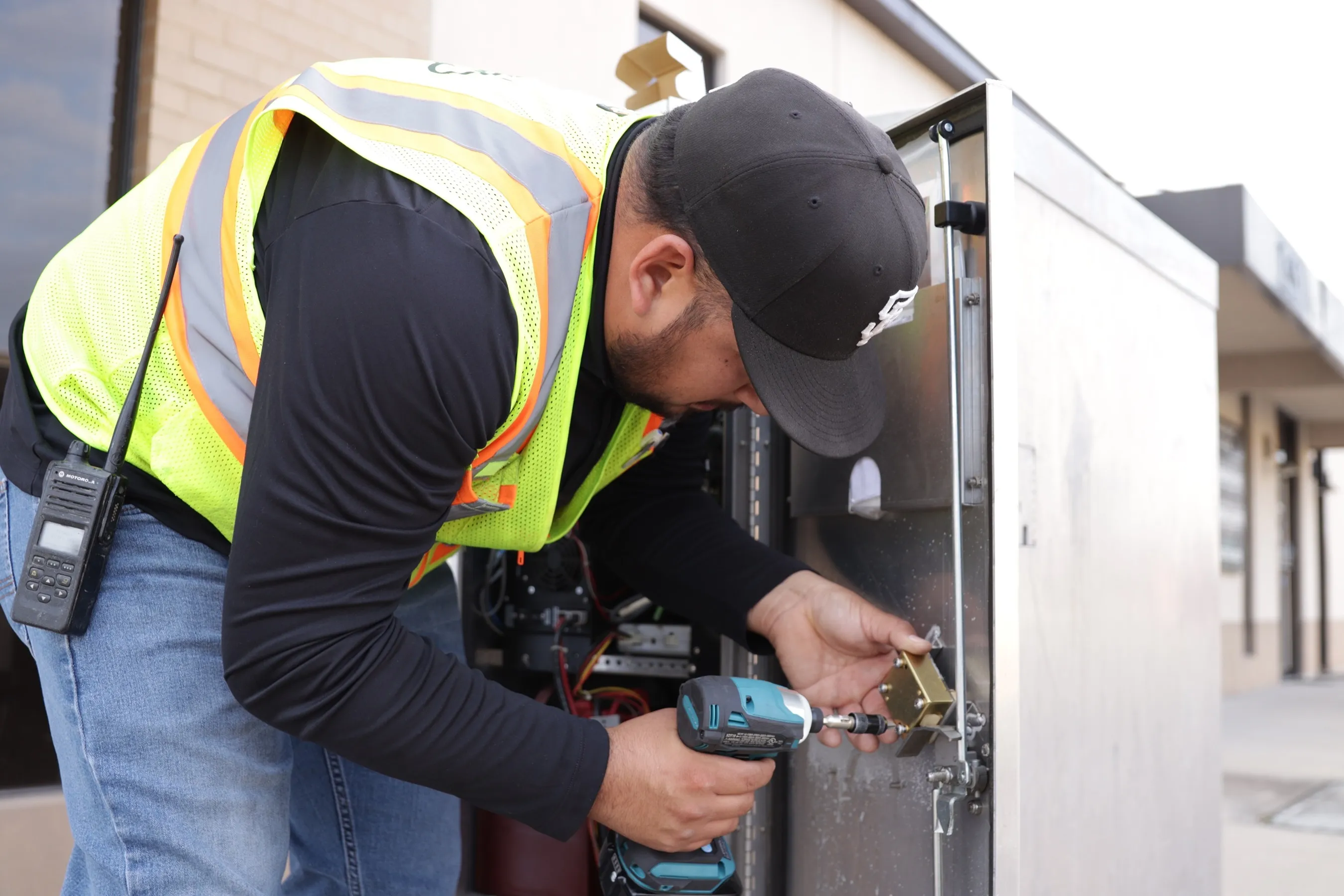
The Transportation Services and Mobility department for the city of Grand Prairie, Texas - part of the Dallas-Fort Worth metro area - has replaced locks on its traffic cabinets.
It has used Alcea’s Traffic Cabinet Locking Solution, powered by Abloy technology, to prevent units from tampering and unauthorised access.
Alcea was formerly known as Assa Abloy Global Solutions - Critical Infrastructure and the solution was developed by Jerry Burhans, managing director for North America, and Michael Woody, manager of the Alcea Competence Center in Irving, which shares a border with Grand Prairie.
The contract involves 240 smart locks, 210 high security mechanical locks and padlocks on all city traffic cabinets plus 10 message boards, 191 mechanical locks for all school flashing sign cabinets, and 20 Bluetooth keys.
“Having control over who has access and when to our traffic cabinets was a major driver for this project,” says Raul Perez, Grand Prairie’s ITS specialist.
“We have not had people trying to force their entry into our cabinets, but we did have several occasions where contractors were gaining access to them without permission or notice. Alcea was the clear choice for our smart lock needs, offering a solution that aligns with our requirements.”
Perez says it can secure all enclosures with a single key: “The versatility of giving us the capability to integrate both mechanical and electronic locks, as well as padlocks, contributed to a more cost effective final solution."
The mechanical lock series that was installed contains Abloy's high security cylinder. The electromechanical locks support electronic access control, key tracking, and audit trails with Cliq Web Manager software.
“The challenges we encountered before are widespread in the transportation industry," Perez continues. "Many traffic enclosures are accessible with a #2 key, which is impossible to track and makes unauthorised access a potential risk. Anyone can buy that type of key for a couple of dollars. This lack of accountability is a significant security concern, particularly with the increasing prevalence of cyber threats targeting government agencies.”
The same key will open cabinet locks and padlocks, and can be updated by using the Cliq app.
"Technicians and supervisors will be using most of the keys, and the others are for the contractors who need access to the traffic cabinets on an occasional basis," Perez concludes.








